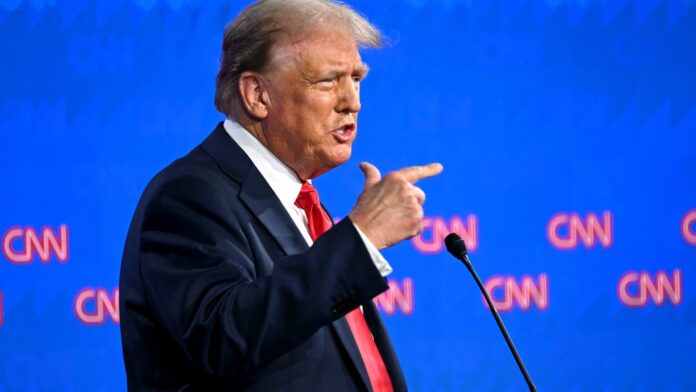Key Falsehoods or Claims:
In the article “Trump Posts Crackpot Signalgate Conspiracy: ‘WHAT ARE THE ODDS’” on Yahoo, the main falsehood is the promotion of the conspiracy theory known as “Signalgate,” which suggests that there is a deep-state plot to remove Trump from office and install Vice President Mike Pence as president. This conspiracy theory is based on a misinterpretation of hand signals supposedly made by Pence during a speech.
Source Bias:
Yahoo is a neutral outlet that provides a platform for various perspectives and opinions. However, the article itself does not promote the conspiracy theory, but rather reports on Trump’s dissemination of it.
Analysis of Falsehoods Shaping Opinions:
The spread of this conspiracy theory by Donald Trump has the potential to shape public opinion by sowing doubt and distrust in the political system and the intentions of government officials. It can also contribute to the erosion of public trust in media and institutions, as well as further polarize the political landscape. Polling data or public statements on the impact of this specific conspiracy theory may not be available, but it is important to recognize the broader context of how falsehoods and conspiracy theories can undermine democracy by undermining trust in institutions and fostering division among the public.
Potential Threat to Democracy:
The article poses a threat to our democracy by highlighting the dissemination of baseless conspiracy theories by a prominent political figure. When these falsehoods are promoted by those in positions of power, they can have a significant impact on public opinion and contribute to the erosion of trust in democratic institutions. This can lead to a more divided and polarized society, making it difficult to govern and address important issues.
Hypothetical Public Reactions or Political Outcomes:
If the Signalgate conspiracy theory gains traction among Trump’s supporters, it could lead to increased skepticism and distrust of the government and the media. This could result in a more polarized electorate and further exacerbate social and political divisions, making it challenging to find common ground and address important issues.
Further Reading Recommendations:
For further reading on the topic of media influence and misinformation studies, I recommend exploring reputable sources such as the Harvard Kennedy School’s Shorenstein Center on Media, Politics, and Public Policy, the Pew Research Center, and the Columbia Journalism Review. These sources provide in-depth analysis of media influence and the impact of misinformation on public opinion and democracy.
Source link
Redirect URL
